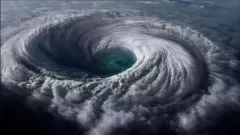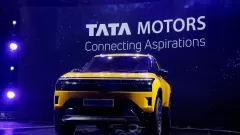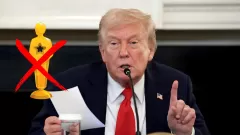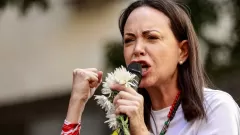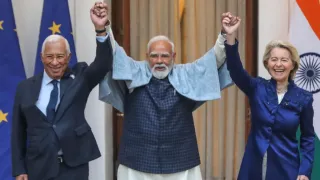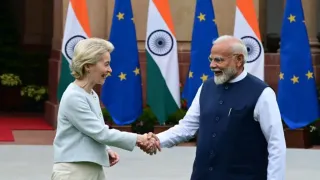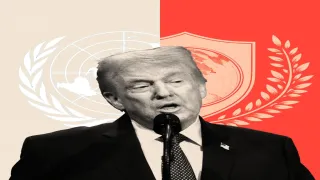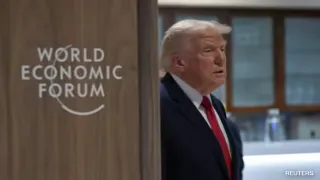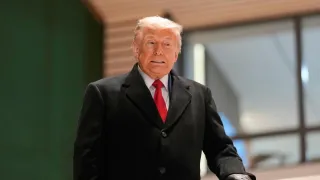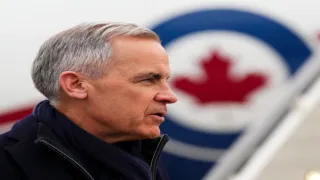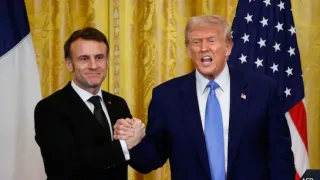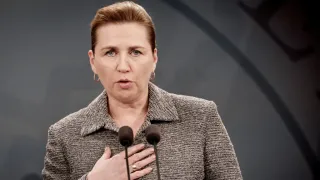Trump Appoints Elon Musk to Lead New Department of Government Efficiency (DOGE): A Complex Partnership
In a move that has sent ripples through the political and business landscapes, President-elect Donald Trump has appointed Elon Musk, CEO of Tesla and SpaceX, to lead a newly established Department of Government Efficiency (DOGE). This new role for Musk, a billionaire entrepreneur and long-time advocate for government reform, has sparked considerable debate given the seemingly contradictory dynamics between Trump and Musk. While both men share certain goals, their divergent views on issues like trade with China, climate policy, and immigration underscore a relationship rife with complexities.
Trump's Vision for DOGE and Musk's Role in Government Reform
President-elect Trump has characterized the Department of Government Efficiency (DOGE) as a revolutionary initiative designed to streamline government processes, cut unnecessary regulations, and reduce federal spending. The goal, according to Trump, is to create a leaner, more efficient government machine by July 4, 2026—the United States' 250th Independence anniversary. The name DOGE, incidentally, aligns with Musk's fondness for Dogecoin, the cryptocurrency he frequently promotes. However, Trump’s choice of Musk to lead this initiative has raised questions, given the pair’s differing stances on key issues.
Trump stated that Vivek Ramaswamy, a former Republican candidate and tech entrepreneur, will join Musk in guiding DOGE. Together, they are tasked with creating a new blueprint for federal administration, leveraging private-sector insights to deliver the structural reforms that Trump sees as necessary to reshape the government.
Contradictions in the Trump-Musk Relationship
While Musk has championed Trump’s campaign and praised his government-reform vision, their contrasting stances on critical issues present significant challenges to their collaboration. These differences are particularly notable in the areas of trade with China, immigration, climate policy, and labor rights.
1. Trump’s Hardline Stance on China vs. Musk’s Business Reliance on the Chinese Market
President-elect Trump has consistently voiced his intent to take a hardline stance on China, focusing on issues related to national security, trade imbalances, and intellectual property protection. As he fills his administration with prominent China skeptics, this approach signals potential trade restrictions and tariffs that could escalate U.S.-China tensions.
“In contrast, China is one of Tesla’s largest markets and a vital component of Musk’s business model. In 2022, Tesla sold approximately 600,000 electric vehicles in China, with its Shanghai Gigafactory serving as the company's largest production hub outside the United States.”
2. Divergent Economic Policies and Their Potential Impact
Musk has expressed concerns over aspects of Trump’s economic policy, particularly on issues like tax reforms, tariffs, and immigration. During the campaign, Trump proposed a series of sweeping tax cuts and tariffs aimed at invigorating the U.S. economy. However, Musk has previously voiced doubts about the effectiveness of these measures, even hinting at the possibility of economic instability if certain tax cuts and tariffs were implemented.
“Trump’s approach to immigration is another point of contention. The President-elect has championed strict immigration controls, advocating for deportation policies and significant restrictions on foreign workers.”
Key Points on the Complex Relationship
- Economic Policies: Musk has expressed doubts over some of Trump’s economic measures.
- Environmental Views: Trump’s stance on climate change contrasts with Musk’s green initiatives.
- Labor Relations: Trump’s worker-friendly rhetoric contrasts with Musk’s history of layoffs.




